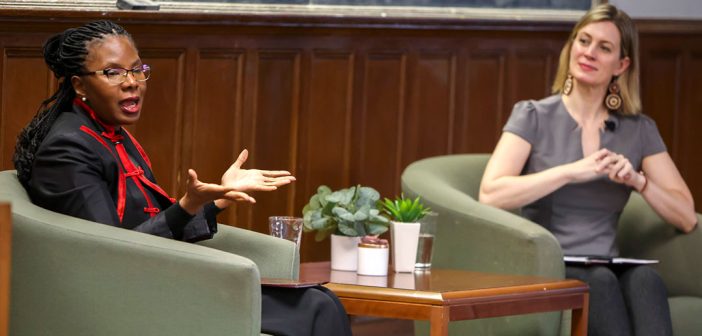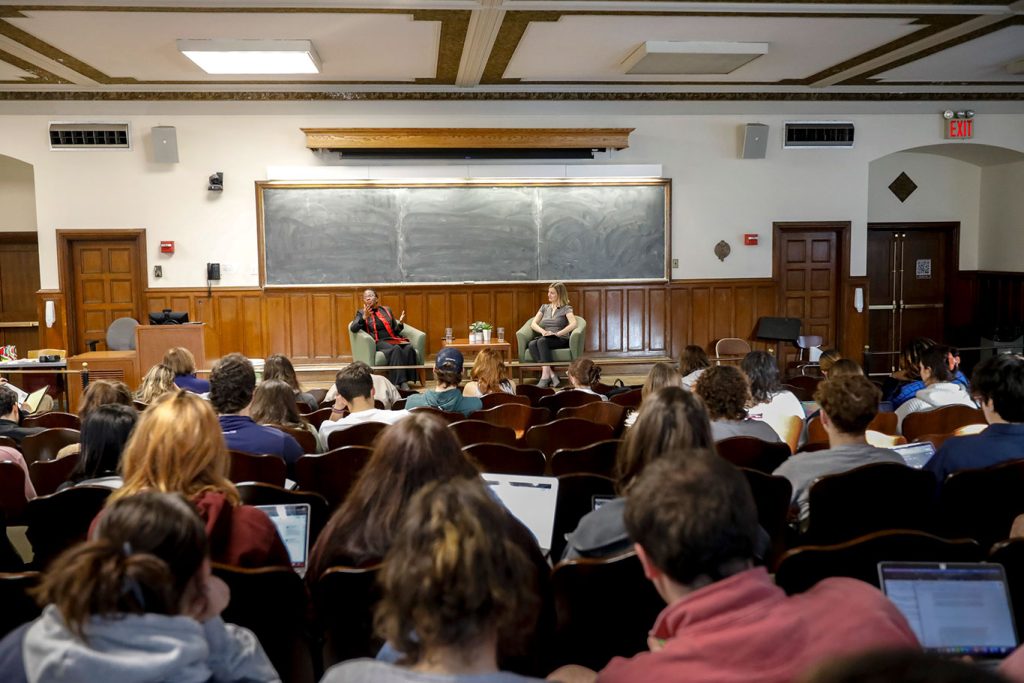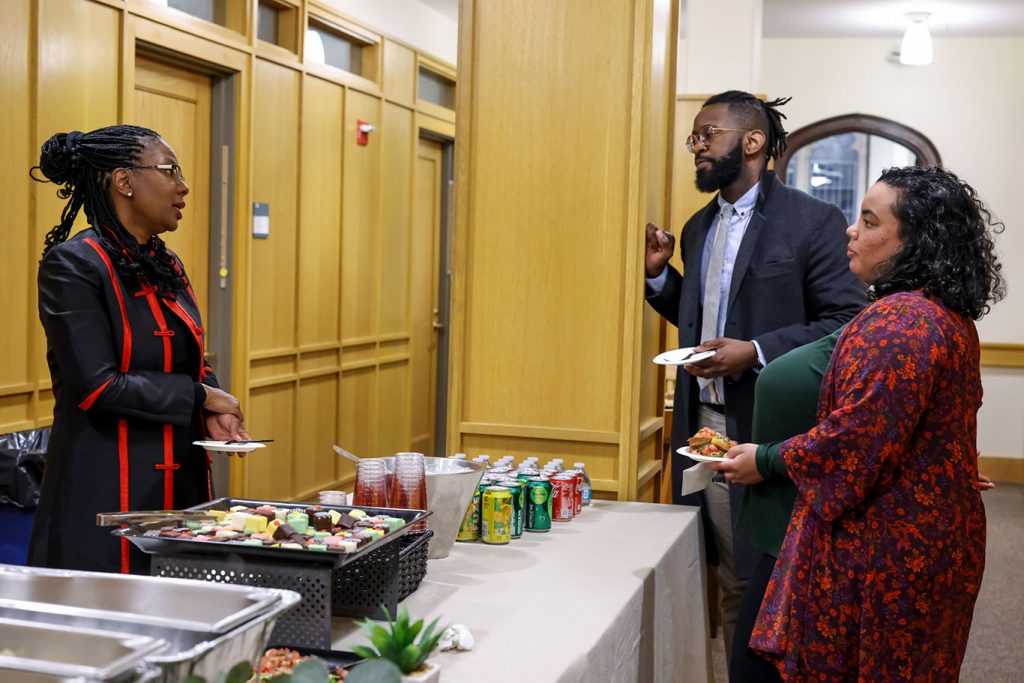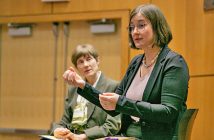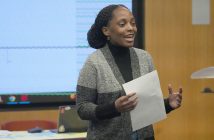In “Ecowomanism, Justice, and the Work of Planetary and Self Care,” Harris, a professor at Wake Forest University, made the case that race, gender, spirituality, and ecology are deeply intertwined and talked about the role of Black women in environmental justice.
“Ecowomanism is essentially an approach to environmental ethics that centers the voices, perspectives, expertise, and scholarship of women of African descent,” she said.
“All over the world, there are women of color who are at the forefront of environmental justice work because it’s our children who are being deeply impacted.”
The starting point for Harris’ conversation with Christiana Zenner, Ph.D., associate professor of theology at Fordham, was “Whose Earth is it Anyway?”(University of North Carolina Press, 2000), a groundbreaking essay by James Cone, Ph.D., who is widely credited as the father of Black liberation theology.
The premise of the essay is that the same logic that leads to slavery and segregation also leads to the exploitation of animals and the ravaging of nature.
“In the same way that James Cone argues that there is a link between justice issues and environmental issues, there is also a deep, deep link between all justice issues and earth justice issues,” Harris said.
All undergraduate Fordham students taking the core curriculum class Faith and Critical Reason this semester have read the essay. Many were present for the event at Keating Hall, which was sponsored by the Department of Theology and is part of the undergraduate First Year Experience program. It was also live-streamed to the Lincoln Center campus.
Harris, who was a student of Cone at the Union Theological Seminary, said that Cone did more than just connect racial justice to environmental justice. Equally important, he credited the indigenous and Black women who came before him for their contributions to the field.
“Dismantling patriarchy is very difficult for men to do in our culture and the African-American community. So it is quite significant that Cone was actually able to get there, and he was able to get there in the midst of his career,” she said.
Harris said that some of her fellow students at Union Theological Seminary, including Jacqueline Grant, Ph.D., and Karen Baker-Fletcher, Ph.D., were instrumental in pushing Cone to make space for Black women.
“That they created a space for his own awakening is one of the most compassionate things that womanists can do,” she said.
“In Buddhism, we call that concept ‘fierce compassion.’ It’s loving someone so much that you hold them accountable to the spirit who they ought to truly be.”
Harris also talked at length about how interfaith dialogue can strengthen the ways one talks about ecological and racial justice.
“The way we talk about climate change today is not how you’re going to be talking about it 20 years from now. You’re going to need new language. Some of it will come from the poetry you write, some of it will come from the articles you’ve written, and some of it will come from the inspiration that you get here tonight,” she said.
Rhea Sidbatte, a first-year student at the Gabelli School of Business at Lincoln Center majoring in Global Finance and Business Economics, watched the live stream from the Lincoln Center campus.
Sidbatte never took philosophy or theology in high school, and Faith and Critical Reason has become one of her favorite classes, she said, because it’s given her the tools to see how theology is relevant to her day-to-day life. She said she was inspired by Harris’ focus on the value of communalism and lived experience.
“When we’re talking about these ecological issues, we have to move the conversation from focusing on doctrines to listening to other people’s stories and hearing where they came from,” she said.
Harris also met with students and faculty of color in a private reception after the conversation. In addition to her appearance on the 26th, Harris also visited the Rose Hill campus on April 27 for a conversation with the Fordham community about DEI frameworks and anti-racist pedagogies and for a gathering where students, faculty, and community members reflected on Fordham’s newly-released Laudato Si’ Action Plan and brainstormed about next steps.
